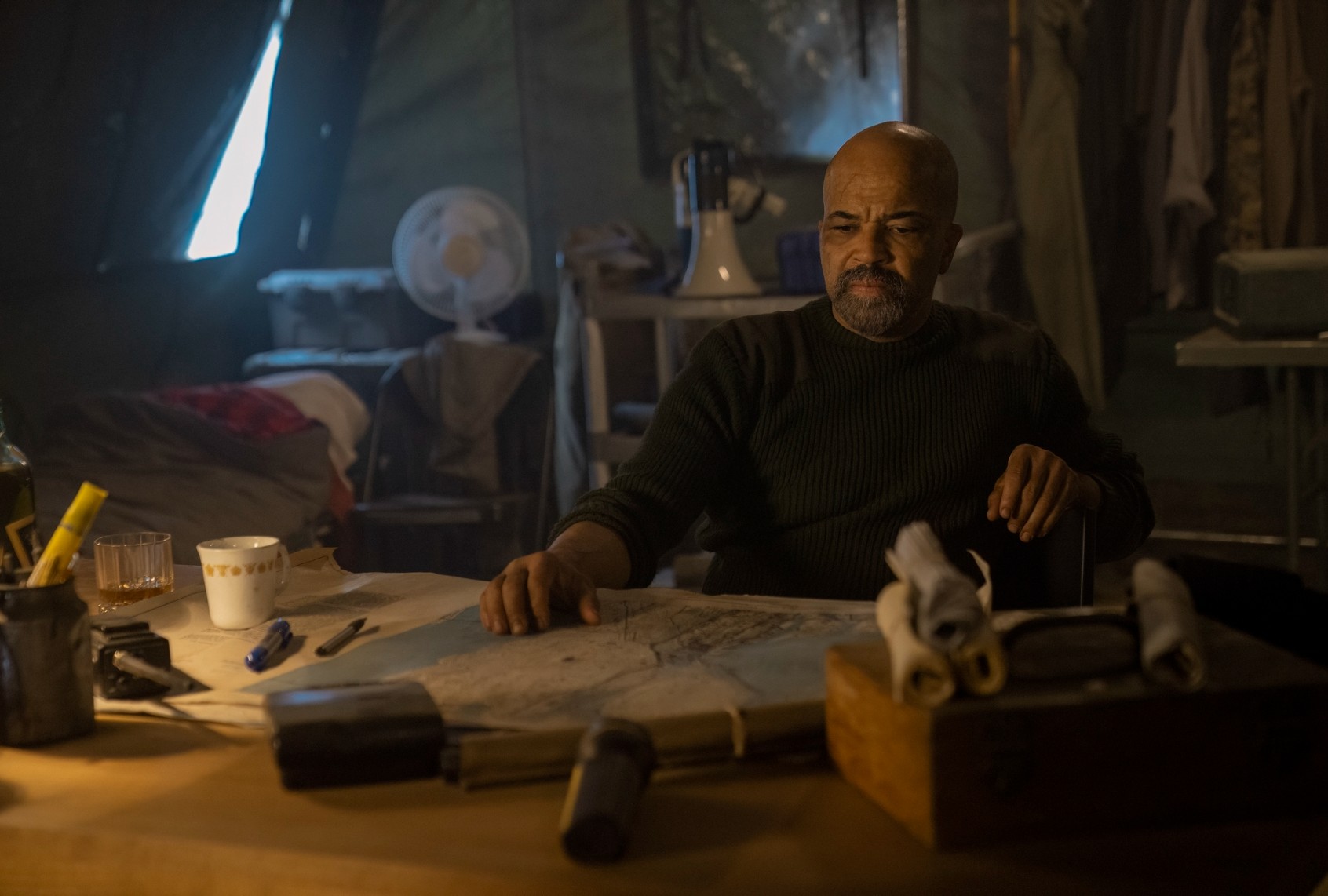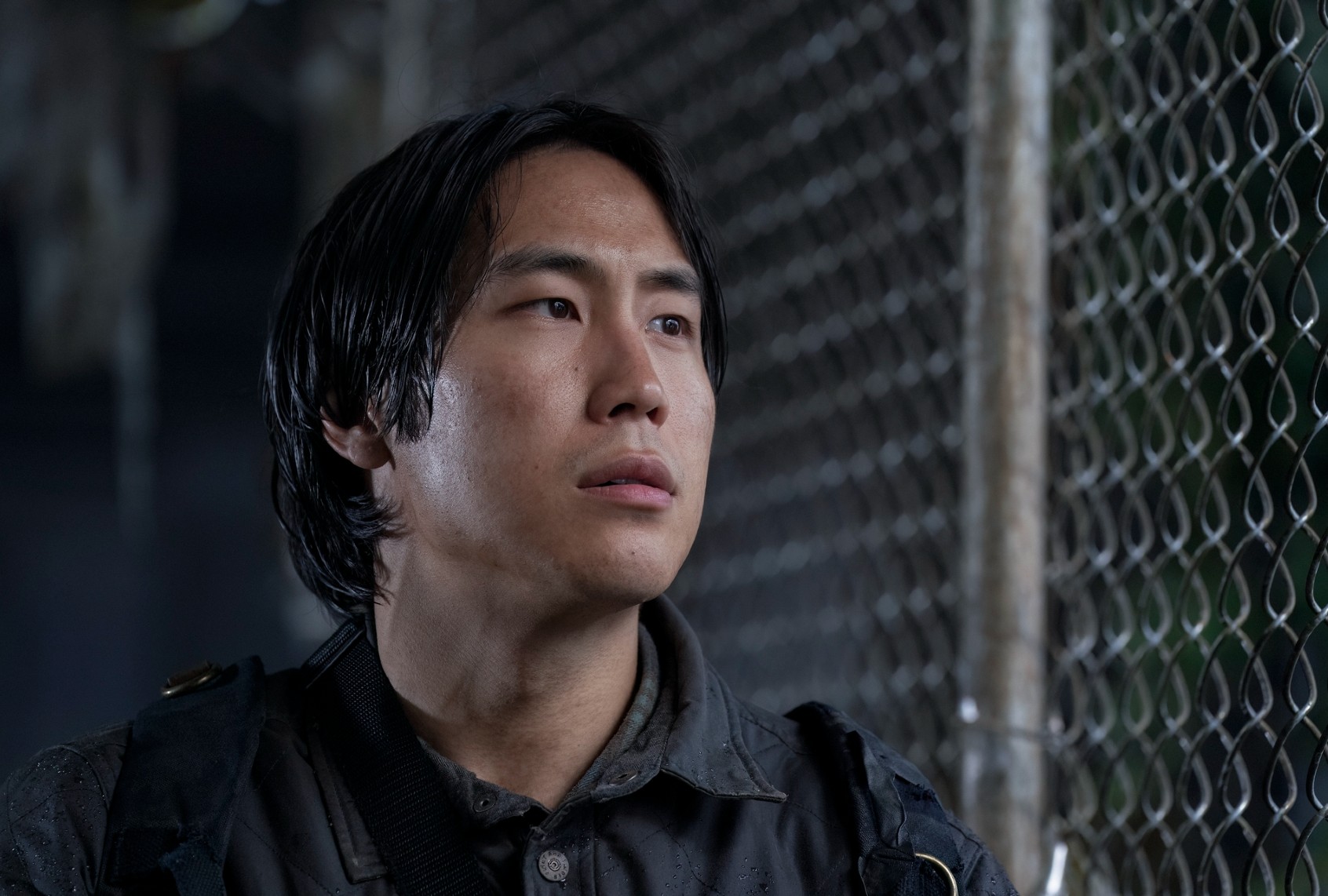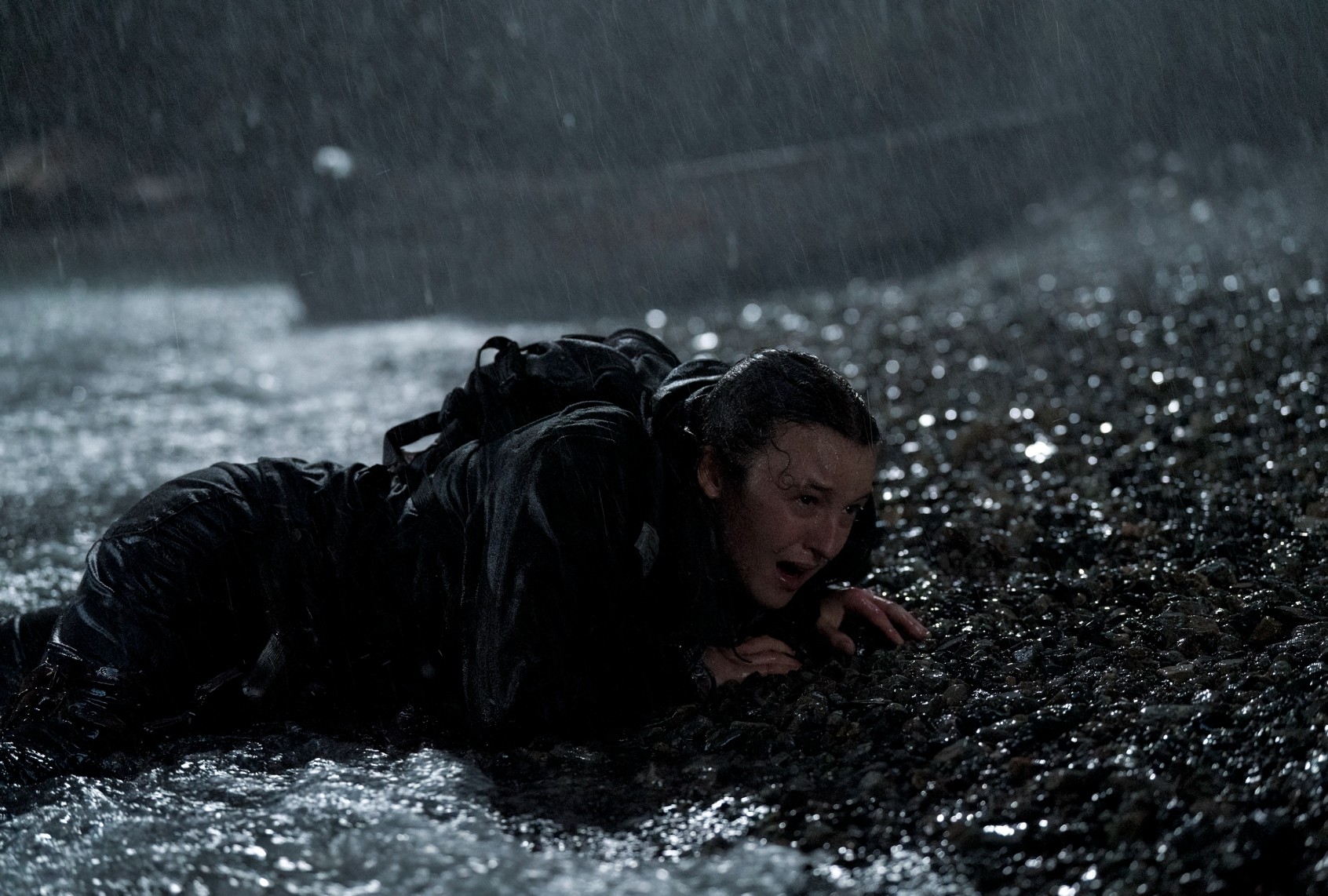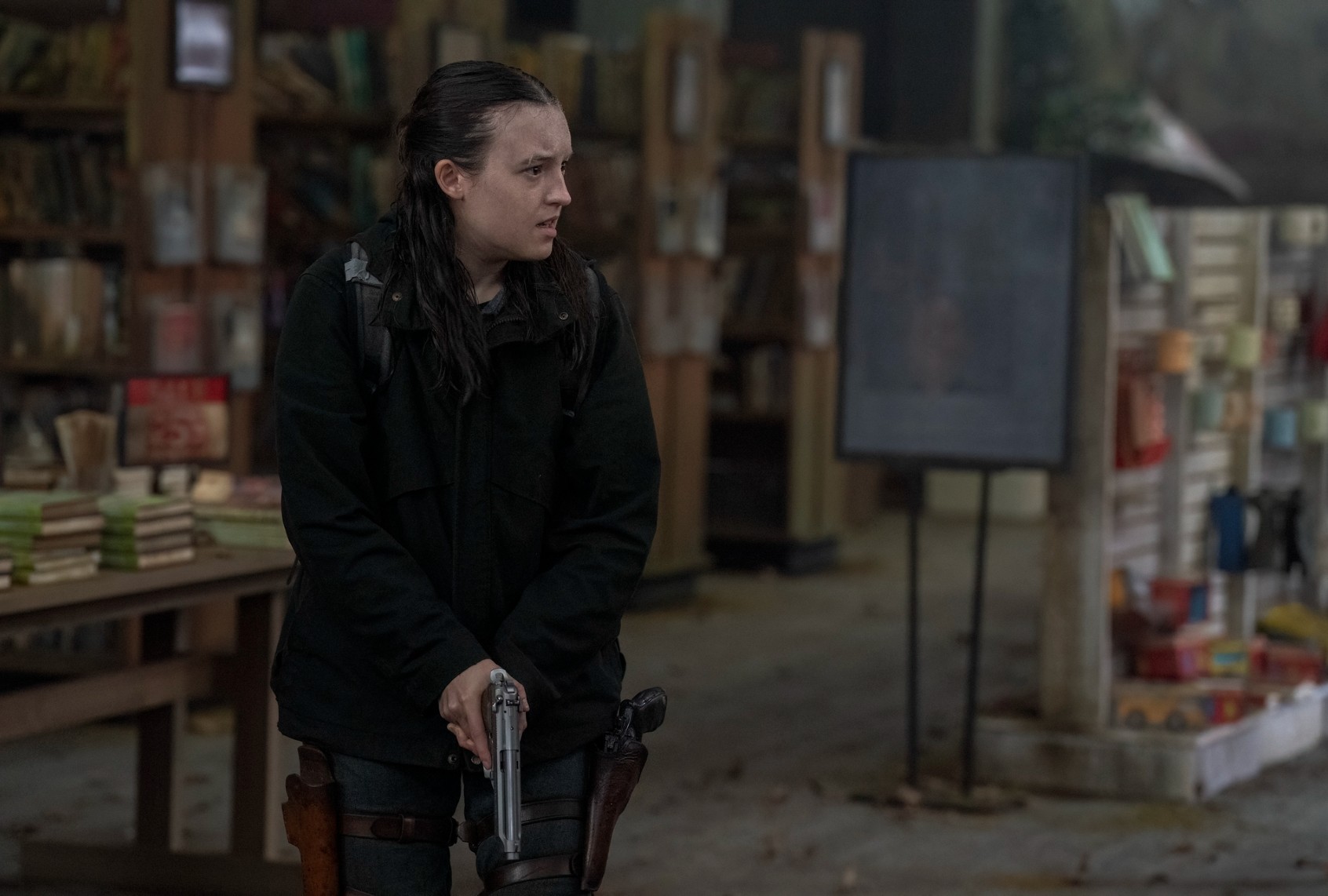Television is a vehicle built for vicarious experiences, a medium fueled by feeling and thus prone to engaging in manipulation. Some of us are unashamedly expressive about everything, welcoming catharsis in all its forms. But most of us demand that shows earn our heightened reactions with evident arguments.
If the closing moments of “The Last of Us” second season finale left you feeling a little unsteady, if not confused or betrayed, you are not alone. Gamers who survived “The Last of Us II” felt a lot like that when they virtually lived and died as the game’s hero, Joel, only to be blindsided by the creators’ choice to make them play his killer.
Epic entertainment chiaroscuros are often dull and unrealistic, hence the push in recent decades to test and reshape our definition of virtue. What is great television if not an accurate imitation of life?
Season 2 follows the events of the game’s 2020 sequel, “The Last of Us II,” retraining its focus on empathy and our Wild West cinematic notions of justice. Right now, the latter seems more natural to us than the former.
Neil Druckmann applies the same philosophy to the games he co-created, which are less concerned with tricks and codes than melding our emotional mainframe to those of Joel and Ellie. The first game leaves players in a cloud of moral ambiguity, similar to the first season’s jarring cut to the credits the moment Joel (Pedro Pascal) gravely lies to his surrogate daughter Ellie (Bella Ramsey).
Viewers know the truth. When Joel finds out that to create a cure, the plague-immune Ellie would have to die, he murders nearly every staff member in the hospital where she was being prepped, all to save her instead of humanity. That’s an ugly story, so Joel concocts a more palatable one that he falsely swears is the truth.
Season 2 follows the events of the game’s 2020 sequel, “The Last of Us II,” retraining its focus on empathy and our Wild West cinematic notions of justice. Right now, the latter seems more natural to us than the former. Far-right conservatives have taken a hard turn against empathy, with Christian Nationalists declaring it to be more sinful than righteous.
 Jeffrey Wright in "The Last of Us" (Liane Hentscher/HBO). In February, New York Times columnist David French examined the way this phenomenon has bled into politics, with right-wing podcasters like Allie Beth Stuckey aligning empathy to a supposed toxic progressivism seeking to sway evangelicals.
Jeffrey Wright in "The Last of Us" (Liane Hentscher/HBO). In February, New York Times columnist David French examined the way this phenomenon has bled into politics, with right-wing podcasters like Allie Beth Stuckey aligning empathy to a supposed toxic progressivism seeking to sway evangelicals.
“For example,” French wrote, “if people respond to the foreign aid shutdown and the stop-work orders by talking about how children might suffer or die, then they’re exhibiting toxic empathy.”
Around the same time, Elon Musk declared, “The fundamental weakness of Western civilization is empathy.” The extent of Musk’s influence is the subject of intense debate, but he said this on “The Joe Rogan Experience,” which has enormous reach with the 18-to-34 demographic, the primary gaming market. Rogan didn’t refute that.
“There's so much empathy that you actually suicide yourself,” Musk adds, concluding, “We've got civilizational suicidal empathy going on.”
In the world of “The Last of Us,” the last decade’s version of cruel politics never comes to fruition. Druckmann probably didn’t foresee a push to reconsider this human virtue as a poison in 2013, when the original game was released. By the time its sequel came out, it’s possible he did; “Part II” was announced in 2016.
Regardless, Druckmann’s decision to drop gamers into the skin of Abby Anderson, Joel’s murderer (played in the series by Kaitlyn Dever), could never avoid polarizing players. Genre geeks love stories that dance in foggy moral swamps, but in choosing a character through which to express our power fantasies, we prefer to be clear about the side we’re taking. Joel is an imperfect figure, but we’re moved to bond with him and agree with Ellie that he didn’t deserve to die.
Asking players to realize that Abby’s reasons for killing him follows one of the oldest laws known to humankind, replacing an eye for an eye with a father’s life for a father, is difficult and a bit revolutionary.
 Kaitlyn Dever in "The Last of Us" (Liane Hentscher/HBO). Druckmann and Craig Mazin’s adaptation takes us on a similar but not quite identical journey to the game, which doesn’t reveal Abby’s motivation for hunting and killing Joel until late in the action. The second season premiere lays Abby’s reasons on the table straightaway when Dever’s ex-Firefly character tearfully vows to make Joel, her father’s executioner, pay for that killing with interest.
Kaitlyn Dever in "The Last of Us" (Liane Hentscher/HBO). Druckmann and Craig Mazin’s adaptation takes us on a similar but not quite identical journey to the game, which doesn’t reveal Abby’s motivation for hunting and killing Joel until late in the action. The second season premiere lays Abby’s reasons on the table straightaway when Dever’s ex-Firefly character tearfully vows to make Joel, her father’s executioner, pay for that killing with interest.
This is what Druckmann and Mazin want us to ponder: Which side is “bad,” and whose cause is “just”?
When she fulfills that mission, we join Ellie in hating her.
Then we pull for Ellie and Dina (Isabela Merced) when they defy the decision of Jackson, Wyoming’s leadership council and strike out for Seattle, Abby’s last known location, on their own.
Once Ellie and Dina stumble across a cluster of massacred men, women and children in a Washington state forest, the righteousness of their mission grows clearer. Finding out that Abby’s militant group is called the Wolves, based on their acronym for the Washington Liberation Front, helps to further dehumanize them.
We need your help to stay independent
Ellie and Dina witness WLF soldiers corner and cart off a boy dressed similarly to the dead people in the forest, which all but settles it. These are evil people. Plus, Dina and Ellie are outnumbered and outgunned – all the better, since everyone loves underdogs.
And yet, long before the second season finale — written by Druckmann, Mazin, and Halley Gross, the 2020 game’s narrative lead and co-writer — "The Last of Us" introduces several scenes that make us question that conclusion. One is the origin story of Jeffrey Wright’s Isaac Dixon, a former FEDRA cop who turns on his unit to join the supposed freedom fighters who become the WLF.
Our first indication that he might not be like the other goons with badges is shown in his expository flashback. We see Isaac scowl at another cop who is gleefully telling a story about knocking out the teeth of an unarmed protester he disparagingly refers to as a Voter. (It’s an insult, you see, because the feds took away the people’s right to vote after the society collapsed.)
Jumping to the storyline’s present, we watch Isaac torturing one of the religious zealots the Wolves are warring against, known as Seraphites or Scars, by searing the man’s skin with a scorching-hot saucepan. This happens before Ellie has her own run-in with members of the cult, who grab Ellie and come close to hanging and vivisecting her before she can explain that she’s not a threat. Maybe, then, Isaac’s cruelty isn’t entirely baseless, if you believe torture is ever justifiable.
 Young Mazino in "The Last of Us" (Liane Hentscher/HBO). This is what Druckmann and Mazin want us to ponder: Which side is “bad,” and whose cause is “just”? The lines blur further when Ellie’s retribution tour claims the lives of bystanders – some innocent, others less so — before she lays eyes on Abby again.
Young Mazino in "The Last of Us" (Liane Hentscher/HBO). This is what Druckmann and Mazin want us to ponder: Which side is “bad,” and whose cause is “just”? The lines blur further when Ellie’s retribution tour claims the lives of bystanders – some innocent, others less so — before she lays eyes on Abby again.
In a previous episode, Dina reveals to Ellie that she loves her and that she’s pregnant with the child of her ex-boyfriend Jesse (Young Mazino). Then Jesse surprises the pair by showing up in Seattle with Joel’s brother Tommy (Gabriel Luna), just in time to save them from a run that goes sideways when Dina is shot by someone wielding a crossbow.
The finale opens in their theater hideout with Jesse removing the crossbow bolt from Dina's thigh, during which she refuses to drink whiskey to dull the pain.
Once Ellie returns from torturing Nora to get Abby's location, Jesse reveals that Tommy is roaming Seattle on his own and recruits Ellie to help find him. As they track Tommy, Jesse also lets Ellie know he's figured out that Dina, the woman who has never turned down a drink in her life, is pregnant. This makes him more furious at Ellie than he already was. But Jesse soon realizes Ellie can't be deterred from her hunt, and he leaves her to look for Abby.
While being tortured, Nora would only say the words "wheel" and "whale," but it was enough for Ellie to figure out that Abby is hiding inside the Seattle Aquarium, which is close to a Ferris wheel.
Ellie charges through sheets of rain and commandeers a boat into the choppy waters of Elliott Bay, washing up on a local island's shore to be captured and nearly killed by Seraphites. She escapes and finally makes it to Abby's base, only to find Abby's friends Owen (Spencer Lord) and Mel (Ariela Barer) there instead. Ellie shoots Owen, but a bullet also nicks Mel in the neck, opening an artery. It gets worse. Moments before she expires, Mel reveals to Ellie that she's pregnant and begs Ellie to cut the baby out of her. Ellie is so distraught that she can't bring herself to touch her blade to Mel's skin.
Tommy and Jesse find Ellie at the aquarium and bring her back to the theater, where Dina is waiting. After speaking with Tommy, Ellie decides to abandon her blood feud and return to Jackson. But it’s too late.
Abby storms their hideout, shoots Jesse in the head when he runs into the fray, and is moments from killing Tommy when Ellie finally surrenders to her. Abby recognizes Ellie as the murder witness whom she allowed to live — and a shot rings out before the scene cuts to black. Then the story rewinds to three days earlier, where we see Abby in a WLF bunker waking from a nap. In that moment, she has no idea who Ellie is, or that in a few days her closest friends will be dead. But we know that we'll be following Abby's story during the upcoming season.
There aren’t many series that rip out our hearts only to reveal an intent to help us better understand our assailant’s motivations. That's the combined blessing and curse of “The Last of Us,” both as a game and a TV drama. Some players think of it more as an interactive movie, which speaks to a prominent problem in shows and movies adapted from extensively scripted games. If the appeal is in controlling a character as they move through a story, where is the value in a more passive version of the story retracing the same steps without much deviation?
 Bella Ramsey in "The Last of Us" (Liane Hentscher/HBO), I’d counter by pointing to the past hints that Mazin and Druckmann dropped about the emotional terrain through which they intended to lead us. “Long, Long Time,” the series’ third episode, was that first signpost.
Bella Ramsey in "The Last of Us" (Liane Hentscher/HBO), I’d counter by pointing to the past hints that Mazin and Druckmann dropped about the emotional terrain through which they intended to lead us. “Long, Long Time,” the series’ third episode, was that first signpost.
That free-standing, emotionally stirring installment allowed us to bask in the gorgeous, too-short romance shared by Bill (Nick Offerman) and Frank (Murray Bartlett). Bill and Frank's story isn't shown in the game. Nor is it necessary for Joel and Ellie’s journey, beyond demonstrating why our reasons for living aren’t always practical but are often necessary, even in an apocalypse.
There aren’t many series that rip out our hearts only to reveal an intent to help us better understand our assailant’s motivations.
Without their love story, we might never have seen Bill as anything other than a belligerent survivalist and eternal curmudgeon Joel knew him to be. But through Frank’s eyes, we come to understand Bill’s humanity. Sympathizing with easy-to-love characters is unchallenging, which makes the second season finale’s promised perspective shift enticing and potentially hate-watchable.
Maybe not, though. Consider, for example, the way “Black Panther” made Michael B. Jordan’s Erik Killmonger as enthralling as he was despicable by showing us that he wasn’t born evil. The hero’s actions turned him towards it.
But “Black Panther” invites the audience inside its anti-hero’s origin story for a few minutes, whereas “The Last of Us” proposes we walk with Abby, not Ellie, for a portion of the third season — if not the whole thing. We can’t know whether this narrative reset will align with our expanding rejection of empathy or push against that coldness.
Want a daily wrap-up of all the news and commentary Salon has to offer? Subscribe to our morning newsletter, Crash Course.
“The Last of Us” never lets us forget that Joel, Ellie and Abby are human. We’re acutely reminded of that whenever they – and by digital extension, we — die.
Joel and Ellie respawn infinitely, but the game makes us feel every single snuffing instead of pausing before the action gets grisly. If an explosion catches Joel on fire, his screams are audible long after the screen cuts to black. If a cannibalistic grifter catches little Ellie, you see his machete blade impale her.
We want to save them because that’s the game’s mission and because we spend hours, days, and sometimes weeks navigating them through and past mortal threats. Druckmann has said in a recent interview with The Atlantic that the first game “is about the unconditional love a parent has for a child.” The second anchors itself in all the ways, reciprocating that love can be misdirected and weaponized.
Ellie’s assassination run nearly drowns her and compromises her soul, and everything that leads up to that costly confrontation with Abby is the result of a lack of empathy. Revenge has destroyed the world as our heroes once knew it. Maybe stepping into someone else’s is the cure we didn’t realize we needed.
All episodes of "The Last of Us" are streaming on HBO Max.
Read more
about this topic


